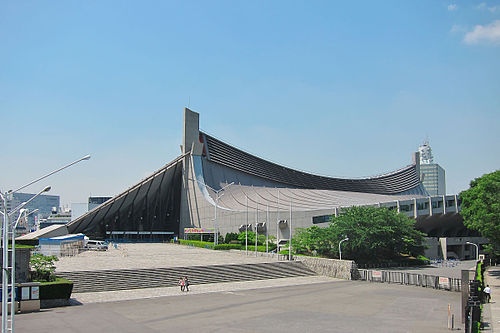
The 13th International Stoke Mandeville Games, later known as the 1964 Summer Paralympics, was an international multi-sport event held in Tokyo, Japan, from November 3 to 12, 1964, in which paraplegic and tetraplegic athletes competed against one another. [2] [3] [4] The Stoke Mandeville Games were a forerunner to the Paralympics first organized by Sir Ludwig Guttmann in 1948. [4] This medal table ranks the competing National Paralympic Committees (NPCs) by the number of gold medals won by their athletes.
Contents
A total of 418 medals were awarded in 9 sports. Athletes from 17 of the 19 competing NPCs won at least one medal with the United States taking both the most gold medals, with 50, and most in total, with 123. [5] The host nation Japan won 10 medals at the Games: 1 gold, 5 silver and 4 bronze. The debuting NPCs included Japan, South Africa, Sweden and Fiji. South Africa, despite being banned from the Olympics, [6] was present at the 1964 Paralympics. [7]
Athletes with outstanding performances included Margaret Harriman of Rhodesia who won two gold medals in archery, [8] and Serge Bec of France who won two individuals gold medals, one team gold medal and one team silver medal. [9] Dick Thompson of the United Kingdom won two individual golds, one silver and one bronze in athletics. [10] The United States' Ron Stein won six golds and South Africa's Daniel Erasmus won two golds and two silvers in athletics. [10]